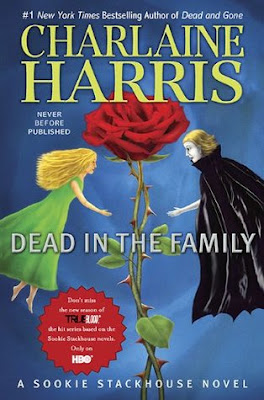 |
| 2.5 stars out of 5 |
Bruenor the dwarf, Wulfgar the barbarian, Regis the halfling, and Drizzt the dark elf fight monsters and magic on their way to Mithril Hall, centuries-old birthplace of Bruenor and his dwarven ancestors.
Faced with racism, Drizzt contemplates returning to the lightless underworld city and murderous lifestyle he abandoned. Wulfgar begins to overcome his tribes's aversion for magic. And Regis runs from a deadly assassin, who, allied with evil wizards, is bent on the companions' destruction. all fo Bruenor's dreams, and the survival of his party, hinge upon the actions of one brave young woman.
Reading this series is more fun that doing housework. So that’s what I’ve been doing—reading this book, and not doing housework (which actually needs to be done quite badly at the moment).
Now, I never played Dungeons & Dragons, so I don’t really understand how these Forgotten Realms books fit into that whole scene, but I did obsessively read and re-read Tolkien as a teen (and I still re-read him on occasion, when I need comfort). So it’s pretty difficult for me to overlook how much of this whole plot is lifted directly from The Hobbit and LOTR. Specifically,
I get the impression that Salvatore was one of the first writers to cash in on the cultural phenomenon of D&D and fantasy literature. It seems that publishers in the 1980s figured out that these fantasy quest tales would sell, whether they were well written or not, and flooded the market with a ton of such material. Perhaps Salvatore was one of the better ones? Is that why he made it on the NPR’s list of notable science fiction & fantasy? I note on Wikipedia that there is a listing of D&D writers—of the 60ish listed, I recognize only 5 names (and only Salvatore for the D&D writing). His writing is very florid and everything, even eating, is very dramatic.
If you enjoy these books, read them. Far be it from me to discourage your enjoyment. But if you, like me, find them a bit lackluster, let me make some recommendations: if you really enjoy Bruenor the dwarf or Regis the halfling, read Tolkien (if you haven’t already). If Wulfgar the barbarian is your favourite character, try Robert E. Howard’s Conan the Barbarian books. If you enjoy the magic and the adventure, look for Fritz Leiber’s Fafhrd and the Gray Mouser series. All three of these authors can really write—the plots flow, there are shades of gray in their heroes and villains, and their vocabulary is excellent, and they write beautifully.
Since I’m certainly at risk here of sounding like a cranky old woman, let me also note that I think these books would be excellent for young readers—the violence isn’t excessive or described in too much detail, the romance is very chaste, good & evil are very obvious, and the vocabulary shouldn’t be too taxing. (But do try to encourage them to read the good stuff like the books listed above once you have them hooked on reading—you’re never too young to read the good writing).
This is book number 235 in my Science Fiction & Fantasy reading project.


























